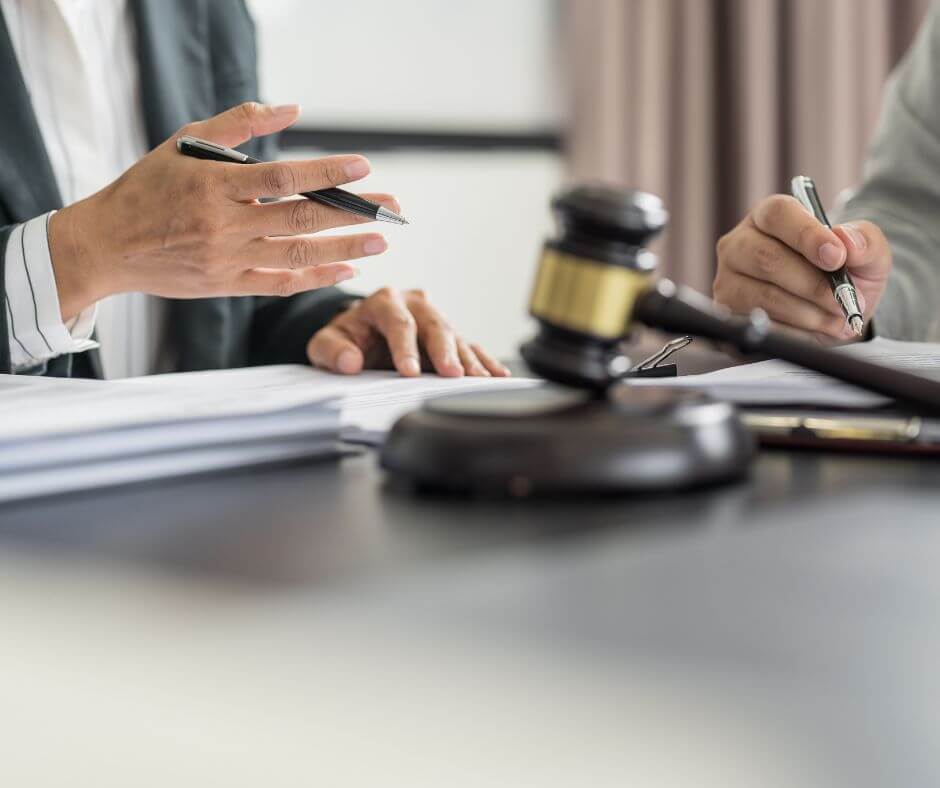What Happens When You File a Grievance Against an Attorney?

Feeling dissatisfied with your Connecticut lawyer’s performance? You’re not alone.
Dealing with a strained attorney-client relationship can be stressful, whether it’s poor communication, fee disagreements, or concerns about their competence.
Finding yourself in this situation brings several questions, including whether you can file a grievance or complaint against a lawyer, especially if you are seeking compensation.
You might wonder where to file a complaint against a lawyer.
Our experienced Connecticut legal malpractice lawyer at StangerLaw LLC is here to help you understand the process of filing a grievance against your lawyer, its limitations, and when pursuing a legal malpractice lawsuit might be a far better option.
Learn how we can help you by calling (860) 561-0651 or sending an online message today.
Our Practice is Limited to Connecticut
We handle Connecticut legal malpractice claims. We won’t review cases where financial losses are less than $100,000.
How to File an Attorney Grievance in Connecticut
The Connecticut Statewide Grievance Committee (SGC) investigates complaints against attorneys. Before filing a grievance, we recommend that you speak to a legal malpractice attorney about your situation. Otherwise, you risk losing rights.
To file a grievance, you’ll need to fill out form JD-GC-6 – Complaint Against Attorney and provide detailed information about the issues you encountered, including:
- Attorney or firm name;
- Dates;
- Facts; and
- Supporting evidence, such as emails or invoices.
Once the form has been filled out and your supporting documentation has been assembled, mail your grievance to the Statewide Grievance Committee at 999 Asylum Avenue, Fifth Floor, Hartford, CT 06105.
While you can file on your own, consulting an attorney ensures you adhere to the strict filing guidelines and deadlines. It also means that you’re not delaying filing a separate malpractice lawsuit for compensation if you have substantial damages.
What Happens After You File a Grievance Against an Attorney?
After submitting your grievance, the SGC conducts a thorough investigation to determine if the attorney’s conduct violated the Rules of Professional Conduct for attorneys in the state.
The process typically involves:
- Review and Investigation. The SGC reviews your complaint and may dismiss it for reasons like insufficient evidence or personal behavior outside the practice of law. If it proceeds, it will be forwarded to a grievance panel for further investigation.
- Probable Cause Hearing. The panel may hold a hearing to determine if there’s probable cause to believe the attorney violated the ethical rules. You might be invited to present your case.
- Committee Action. If the panel finds probable cause, the complaint goes to the full SGC for further review and potential disciplinary action.
If misconduct is found, disciplinary actions depend on the severity of the violation. Connecticut lawyer discipline actions can range from a reprimand to suspension or disbarment.
This process can be time-consuming but ensures fairness and accountability within the legal profession. But the clock is still ticking on your rights to file a claim for damages in a civil lawsuit for malpractice.
When a Grievance May Be the Right Choice
Filing a grievance can hold your lawyer accountable for ethical misconduct, but it doesn’t automatically grant financial compensation. While the SGC may, in some cases, require the attorney to pay restitution, it’s not guaranteed and may be limited to specific damages such as compensation for legal fees.
Consider a grievance if:
- You want to hold your lawyer responsible for unethical behavior like having a conflict of interest, poor communication, or neglecting deadlines; and
- You haven’t suffered significant financial losses due to your lawyer’s actions.
However, if you believe your lawyer’s conduct caused you substantial harm or financial loss, pursuing a legal malpractice lawsuit is the only course of action to recover substantial compensation.
Seeking Compensation Through a Legal Malpractice Lawsuit
Filed in civil court, a legal malpractice lawsuit seeks monetary damages for losses you sustained due to your attorney’s negligence or misconduct. To win, you’ll need to prove that your attorney breached their duty of care and that breach caused you harm and financial losses.
This process typically involves gathering evidence, interviewing witnesses, hiring an expert, and potentially a trial. Consulting an experienced Connecticut legal malpractice attorney is crucial for increasing your chances of success. A grievance will not award you all damages.
Swift Action Is Crucial
Taking swift action is essential when considering a legal malpractice claim in Connecticut. The statute of limitations is typically three years from when the malpractice occurred.
Delaying action and waiting until your grievance is resolved could jeopardize your ability to seek compensation in a malpractice action, even if you have a valid case.
Seek Guidance and Resolution with StangerLaw LLC
Dissatisfaction with your lawyer shouldn’t prevent you from seeking justice.
If you believe your attorney was negligent or engaged in misconduct, contact StangerLaw LLC. We understand the complexities of legal disputes and are dedicated to helping our clients find the resolution they deserve.
Call (860) 561-0651 or fill out our online form today to get started.